- Home
- Upton Sinclair
The Jungle Page 3
The Jungle Read online
Page 3
But it is not likely that he [a poet Sinclair has just quoted] had reference to the kind of anguish that comes with destitution, that is so endlessly bitter and cruel, and yet so sordid and petty, so ugly, so humiliating-unredeemed by the slightest touch of dignity or even of pathos. It is a kind of anguish that poets have not commonly dealt with; its very words are not admitted into the vocabulary of poets—thedetails of it cannot be told in polite society at all. How, for instance, could any one expect to excite sympathy among lovers of good literature by telling how a family found their home alive with vermin ... ? (p. 81).
Sinclair also eschewed the sentimentality that often shaped novelistic representations of the poor. In order to arouse compassion and encourage social reform, writers such as Charles Dickens, Victor Hugo, and Harriet Beecher Stowe, among many others, portrayed the poor as excessively virtuous. These novelists seemed convinced that their middle-class readers would be moved to sympathize with the plight of the poor only if they approved of their moral character. In stark contrast, Sinclair wanted to arouse not sympathy, and certainly not pity, but indignation and outrage. He refuses to sentimentalize his characters; indeed, he sometimes goes to the opposite extreme, as when Jurgis takes work as a scab. The suffering of Sinclair’s characters is not unjust because they are virtuous; it is unjust because it serves a system that exploits the many for the profit of the few.
At the same time, Sinclair is interested in showing that virtue is a luxury that the poor can’t afford. While striving to dignify their suffering, he wants also to explore the ways in which poverty robs individuals of the life of the mind, of spiritual comfort, and of the consolations of intimacy and emotional bonds. In the course of the first half of the novel, Jurgis becomes increasingly despondent; he is unable, for example, to respond to or even think about what might be the cause of Ona’s anguish and her frantic weeping. (It is provoked, we discover with Jurgis, by her sexual exploitation at work.) The narrator observes, “It was only because he was so numb and beaten himself that Jurgis did not worry more about this. But he never thought of it, except when he was dragged to it—he lived like a dumb beast of burden, knowing only the moment in which he was” (p. 147).
Indeed, not only thought but also, it seems, feeling or any semblance of interior life seem to be denied the protagonist. When Jurgis does experience moments of interior awareness, as when the sound of church bells—heard from his jail cell—brings back to him memories of Christmas in Lithuania, his recollections and feelings become instruments of torture. Thinking does not alleviate his torment, but intensifies it. It is better, the text suggests, not to think; better to acclimate to the insensate state that a grueling life demands.
Some readers have taken the view that if Sinclair had given Jurgis more of an interior life by way of richer, fuller responses to his experiences, he would have aroused greater empathy and made us more interested in his fate. Perhaps Sinclair felt that there was more truth and force in showing how the combination of brutal labor and crushing poverty stultifies the mind. But it could be that Sinclair was also attempting to keep the reader mindful that Jurgis’s is not a unique story, that he is a representative figure, standing in for thousands like him. And perhaps Sinclair did not want to individualize Jurgis, to allow his story to fall into the category of the bourgeois novel or the bildungsroman (novel of education), in which a man’s fate is mostly in his own hands, a matter of character and self-knowledge, rather than determined by economic and institutional forces. In this regard Sinclair’s socialist perspective intersects with that of Naturalist writers such as Emile Zola, George Gissing, Theodore Dreiser, and Stephen Crane. Focusing on the effects of environment and heredity on behavior, as distinct from personal history or psychological characterization, the Naturalists held to a pessimistic materialist determinism. Naturalism, according to Malcolm Cowley in an essay entitled, “Not Men: A Natural History of American Naturalism,” is “not what we have learned to call literature ‘in depth’ ”; it concerns itself with what can be observed rather than what takes place unseen, internally. After fifty years of American novels of interior life, the limited interiority of Sinclair’s novel may be what is most foreign to contemporary readers.
One last turn of the screw: Perhaps the reason we get relatively little exposure to Jurgis’s thoughts and feelings beyond “Dieve, I’m glad I’m not a hog,” is that Sinclair believes that it is only after Jurgis discovers socialism, after his conversion experience, that he finds the key to understanding his life, the ability to reflect on what he sees, to put two and two together, to recognize feelings as his own. In this interpretation, socialism not only removes the scales from his eyes but finally enables him to attach meaning to the world.
Conclusion
The Jungle now holds a secure place in the American literary canon. It has never gone out of print since its original publication; it is taught regularly in high schools and colleges; and it generates its share of scholarly and critical study. Its stature is attributed by some to the remarkable documentary value of the text, its painstaking accuracy. For others, the book’s importance will forever be justified by its social impact, particularly its role in the establishment of the federal Food and Drug Administration. For some literary critics, the book’s primary significance is as a representative of the socialist novel or the muckraking novel or the American version of the Naturalist school of writing. The Jungle has not, however, generally been given credit as a great work of literature; it is often chided by critics for the propagandistic tone of its second half. It is interesting to note Sinclair’s own reaction to this charge, which was leveled against many of his novels. He has no interest in refuting it, or in pointing out the literary merits of his prose; rather, he embraces the charge, asking, in so many words, “What’s wrong with propaganda?” He writes:
The Standard Dictionary defines propaganda as: “Effort directed systematically toward the gaining of support for an opinion or course of action.” This, you note, contains no suggestion of reprobation. Propaganda may be either good or bad, according to the nature of the teaching and the motives of the teacher.... it gives a painful wrench to be told that there are moral excellences and heroic splendors in the souls of unwashed and unbeautiful workingmen. We resent such ideas, and likewise the persons who persist in forcing them into our minds; which explains why all orthodox critics agree that Jesus and Tolstoi are propagandists, while Shakespeare and Goethe are pure and unsullied creative artists. Such distinction between “art” and “propaganda” is purely a class distinction and a class weapon; itself a piece of ruling-class propaganda, a means of duping the minds of men, and keeping them enslaved to false standards both of art and of life (Mammonart, pp. 10a-10b).
Upton Sinclair—with his ninety published books, his countless articles and causes, his tireless activism, his unsuccessful run for governor of California, his contribution to Franklin Delano Roosevelt’s New Deal economic policies, and what critic Walter Rideout called his “curiously impersonal egoism”—had far less interest in influencing literary history than in influencing the history of the world. And he did.
Maura Spiegel teaches literature and film at Columbia University and Barnard College. She is the coeditor of The Grim Reader: Writings on Death, Dying, and Living On (1997) and the coauthor of The Breast Book: An Intimate and Curious History (2002), and she coedits the journal Literature and Medicine. She has written on popular culture for the New York Times, and she also writes on film, fashion, and the history of the emotions.
TO THE WORKINGMEN OF AMERICA
ONE
IT WAS four o‘clock when the ceremony was over and the carriages began to arrive. There had been a crowd following all the way, owing to the exuberance of Marija Berczynskas. The occasion rested heavily upon Marija’s broad shoulders—it was her task to see that all things went in due form, and after the best home traditions; and, flying wildly hither and thither, bowling every one out of the way, and scolding and exhorting all day with her tre
mendous voice, Marija was too eager to see that others conformed to the proprieties to consider them herself. She had left the church last of all, and, desiring to arrive first at the hall, had issued orders to the coachman to drive faster. When that personage had developed a will of his own in the matter, Marija had flung up the window of the carriage, and, leaning out, proceeded to tell him her opinion of him, first in Lithuanian, which he did not understand, and then in Polish, which he did. Having the advantage of her in altitude, the driver had stood his ground and even ventured to attempt to speak; and the result had been a furious altercation, which, continuing all the way down Ashland Avenue, had added a new swarm of urchins to the cortege at each side street for half a mile.
This was unfortunate, for already there was a throng before the door. The music had started up, and half a block away you could hear the dull “broom, broom” of a ‘cello, with the squeaking of two fiddles which vied with each other in intricate and altitudinous gymnastics. Seeing the throng, Marija abandoned precipitately the debate concerning the ancestors of her coachman, and, springing from the moving carriage, plunged in and proceeded to clear a way to the hall. Once within, she turned and began to push the other way, roaring, meantime, “Eik! Eik! Uzdaryk-duris!”a in tones which made the orchestral uproar sound like fairy music.1
“Z. Graiczunas, Pasilinksminimams darzas. Vynas. Sznapsas.b Wines and Liquors. Union Headquarters”—that was the way the signs ran. The reader, who perhaps has never held much converse in the language of far-off Lithuania, will be glad of the explanation that the place was the rear-room of a saloon in that part of Chicago known as “back of the yards.” This information is definite and suited to the matter of fact; but how pitifully inadequate it would have seemed to one who understood that it was also the supreme hour of ecstasy in the life of one of God’s gentlest creatures, the scene of the wedding-feast and the joy-transfiguration of little Ona Lukoszaite !
She stood in the doorway, shepherded by Cousin Marija, breathless from pushing through the crowd, and in her happiness painful to look upon. There was a light of wonder in her eyes and her lids trembled, and her otherwise wan little face was flushed. She wore a muslin dress, conspicuously white, and a stiff little veil coming to her shoulders. There were five pink paper-roses twisted in the veil, and eleven bright green rose-leaves. There were new white cotton gloves upon her hands, and as she stood staring about her she twisted them together feverishly. It was almost too much for her—you could see the pain of too great emotion in her face, and all the tremor of her form. She was so young—not quite sixteen—and small for her age, a mere child; and she had just been married—and married to Jurgis,c of all men, to Jurgis Rudkus, he with the white flower in the buttonhole of his new black suit, he with the mighty shoulders and the giant hands.
Ona was blue-eyed and fair, while Jurgis had great black eyes with beetling brows, and thick black hair that curled in waves about his ears—in short, they were one of those incongruous and impossible married couples with which Mother Nature so often wills to confound all prophets, before and after. Jurgis could take up a two-hundred-and-fifty-pound quarter of beef and carry it into a car without a stagger, or even a thought; and now he stood in a far corner, frightened as a hunted animal, and obliged to moisten his lips with his tongue each time before he could answer the congratulations of his friends.
Gradually there was effected a separation between the spectators and the guests—a separation at least sufficiently complete for working purposes. There was no time during the festivities which ensued when there were not groups of onlookers in the doorways and the corners; and if any one of these onlookers came sufficiently close, or looked sufficiently hungry, a chair was offered him, and he was invited to the feast. It was one of the laws of the veselijad that no one goes hungry; and, while a rule made in the forests of Lithuania is hard to apply in the stockyards district of Chicago, with its quarter of a million inhabitants, still they did their best, and the children who ran in from the street, and even the dogs, went out again happier. 2 A charming informality was one of the characteristics of this celebration. The men wore their hats, or, if they wished, they took them off, and their coats with them; they ate when and where they pleased, and moved as often as they pleased. There were to be speeches and singing, but no one had to listen who did not care to; if he wished, meantime, to speak or sing himself, he was perfectly free. The resulting medley of sound distracted no one, save possibly alone the babies, of which there were present a number equal to the total possessed by all the guests invited. There was no other place for the babies to be, and so part of the preparations for the evening consisted of a collection of cribs and carriages in one corner. In these the babies slept, three or four together, or wakened together, as the case might be. Those who were still older, and could reach the tables, marched about munching contentedly at meat-bones and bologna sausages.
The room is about thirty feet square, with whitewashed walls, bare save for a calendar, a picture of a race-horse, and a family tree in a gilded frame. To the right there is a door from the saloon, with a few loafers in the doorway, and in the corner beyond it a bar, with a presiding genius clad in soiled white, with waxed black mustaches and a carefully oiled curl plastered against one side of his forehead. In the opposite corner are two tables, filling a third of the room and laden with dishes and cold viands, which a few of the hungrier guests are already munching. At the head, where sits the bride, is a snowwhitecake, with an Eiffel tower of constructed decoration, with sugar roses and two angels upon it, and a generous sprinkling of pink and green and yellow candies. Beyond opens a door into the kitchen, where there is a glimpse to be had of a range with much steam ascending from it, and many women, old and young, rushing hither and thither. In the corner to the left are the three musicians, upon a little platform, toiling heroically to make some impression upon the hubbub; also the babies, similarly occupied, and an open window whence the populace imbibes the sights and sounds and odors.
Suddenly some of the steam begins to advance, and, peering through it, you discern Aunt Elizabeth, Ona’s stepmother—Teta Elzbieta, as they call her—bearing aloft a great platter of stewed duck. Behind her is Kotrina, making her way cautiously, staggering beneath a similar burden; and half a minute later there appears old Grandmother Majauszkiene, with a big yellow bowl of smoking potatoes, nearly as big as herself. So, bit by bit, the feast takes form—there is a ham and a dish of sauerkraut, boiled rice, macaroni, bologna sausages, great piles of penny buns, bowls of milk, and foaming pitchers of beer. There is also, not six feet from your back, the bar, where you may order all you please and do not have to pay for it. “Eiksz! Graicziau!”escreams Marija Berczynskas, and falls to work herself—for there is more upon the stove inside that will be spoiled if it be not eaten.
So, with laughter and shouts and endless badinage and merriment, the guests take their places. The young men, who for the most part have been huddled near the door, summon their resolution and advance; and the shrinking Jurgis is poked and scolded by the old folks until he consents to seat himself at the right hand of the bride. The two bridesmaids, whose insignia of office are paper wreaths, come next, and after them the rest of the guests, old and young, boys and girls. The spirit of the occasion takes hold of the stately bartender, who condescends to a plate of stewed duck; even the fat policeman—whose duty it will be, later in the evening, to break up the fights—draws up a chair to the foot of the table. And the children shout and the babies yell, and every one laughs and sings and chatters—while above all the deafening clamor Cousin Marija shouts orders to the musicians.
The musicians—how shall one begin to describe them? All this time they have been there, playing in a mad frenzy—all of this scene must be read, or said, or sung, to music. It is the music which makes it what it is; it is the music which changes the place from the rear-room of a saloon in back of the yards to a fairy place, a wonderland, a little corner of the high mansions of the sky.
The l
ittle person who leads this trio is an inspired man. His fiddle is out of tune, and there is no rosin on his bow, but still he is an inspired man—the hands of the muses have been laid upon him. He plays like one possessed by a demon, by a whole horde of demons. You can feel them in the air round about him, capering frenetically; with their invisible feet they set the pace, and the hair of the leader of the orchestra rises on end, and his eyeballs start from their sockets, as he toils to keep up with them.
Tamoszius Kuszleika is his name, and he has taught himself to play the violin by practising all night, after working all day on the “killing beds.” He is in his shirt sleeves, with a vest figured with faded gold horseshoes, and a pink-striped shirt, suggestive of peppermint candy. A pair of military trousers, light blue with a yellow stripe, serve to give that suggestion of authority proper to the leader of a band. He is only about five feet high, but even so these trousers are about eight inches short of the ground. You wonder where he can have gotten them—or rather you would wonder, if the excitement of being in his presence left you time to think of such things.

 Prince Hagen
Prince Hagen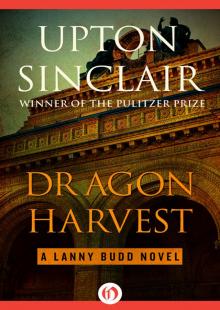 Dragon Harvest
Dragon Harvest The Jungle
The Jungle Sylvia's Marriage
Sylvia's Marriage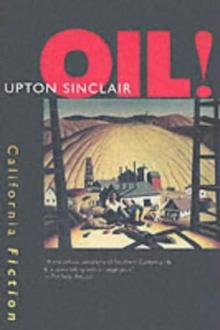 Oil! A Novel by Upton Sinclair
Oil! A Novel by Upton Sinclair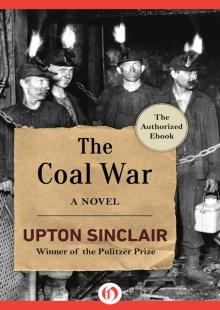 The Coal War: A Novel
The Coal War: A Novel Presidential Agent
Presidential Agent World's End
World's End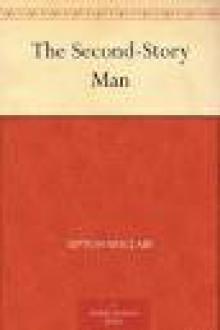 The Second-Story Man
The Second-Story Man O Shepherd, Speak!
O Shepherd, Speak!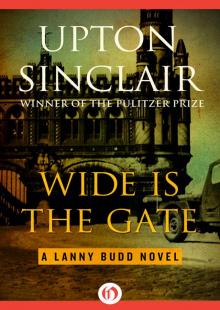 Wide Is the Gate
Wide Is the Gate The Return of Lanny Budd
The Return of Lanny Budd One Clear Call I
One Clear Call I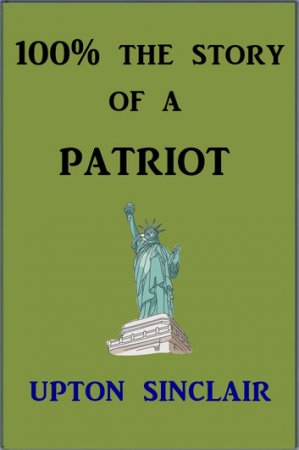 100%: the Story of a Patriot
100%: the Story of a Patriot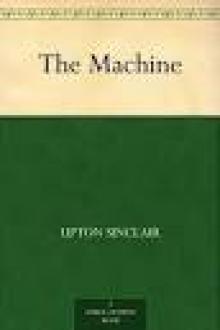 The Machine
The Machine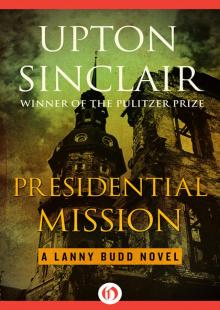 Presidential Mission
Presidential Mission A Cadet's Honor: Mark Mallory's Heroism
A Cadet's Honor: Mark Mallory's Heroism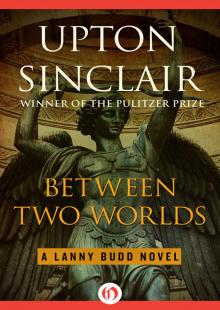 Between Two Worlds
Between Two Worlds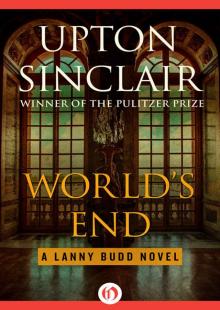 World's End (The Lanny Budd Novels)
World's End (The Lanny Budd Novels)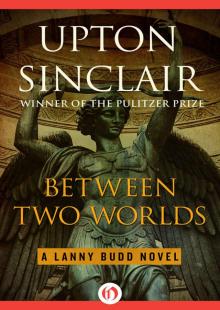 Between Two Worlds (The Lanny Budd Novels)
Between Two Worlds (The Lanny Budd Novels)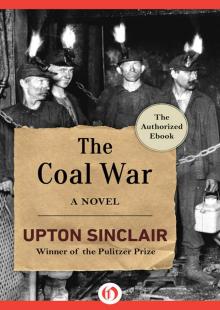 The Coal War
The Coal War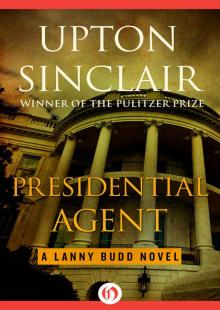 Presidential Agent (The Lanny Budd Novels)
Presidential Agent (The Lanny Budd Novels)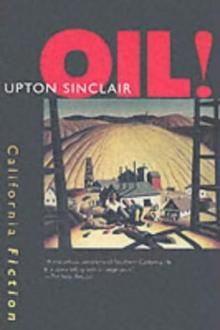 Oil (filmed as There Will Be Blood)
Oil (filmed as There Will Be Blood)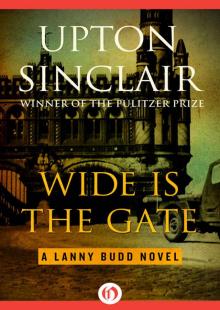 Wide Is the Gate (The Lanny Budd Novels)
Wide Is the Gate (The Lanny Budd Novels)